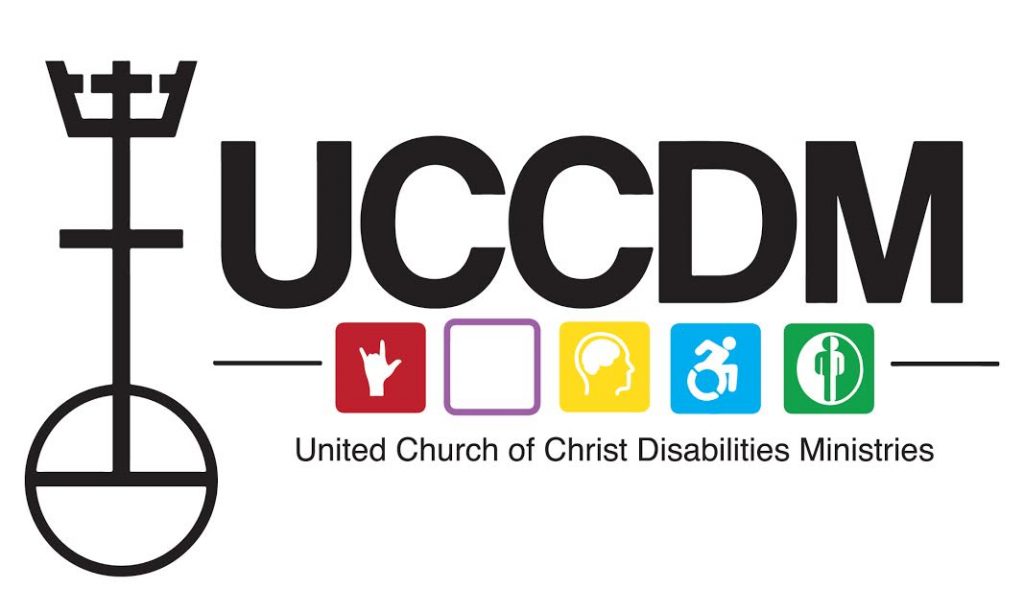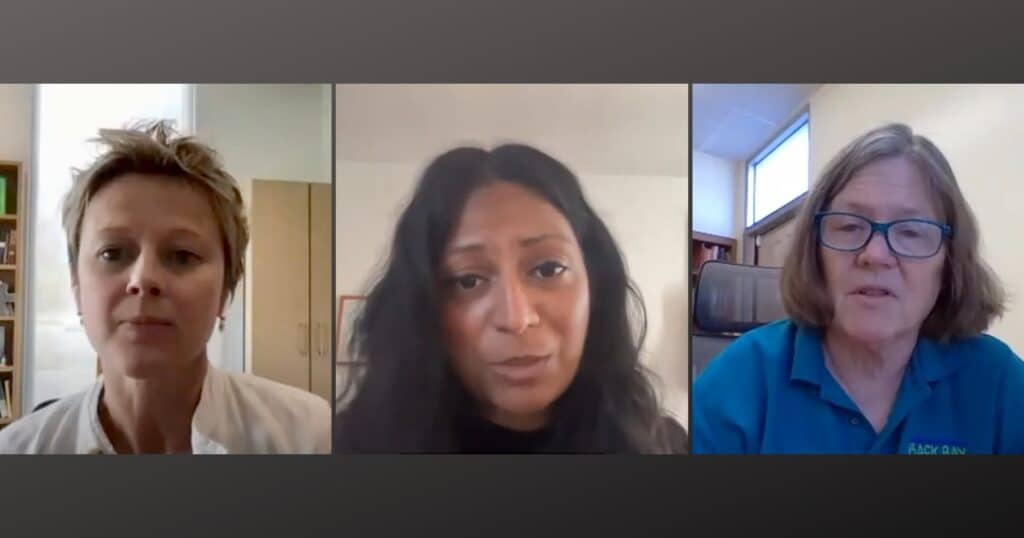A ‘Just Peace’ future: Part 3
Each year on September 21 the World Council of Churches (WCC) calls churches and parishes to observe the International Day of Prayer for Peace. September 21 is also the United Nations-sponsored International Day of Peace. The United Church of Christ is one of the WCC’s 349 member churches.
Michael Neuroth, the UCC’s policy advocate for international issues, has authored this third article (of a three part series) in response to national and international efforts at creating renewed interest in the tenets of “Just Peace” within faith communities.
Parts one and two in the series were authored by Susan Thistlethwaite.
In March of this year, the central committee of the World Council of Churches commended for study, reflection, and common action a new “Ecumenical Call to Just Peace.” The document calls on Christians around the world to “commit themselves to the Way of Just Peace.”
The document was affirmed by the participants of the recent International Ecumenical Peace Convocation which took place in May, 2011 in Kingston Jamaica under the theme “Glory to God and Peace on Earth.”
Several UCC members attended the event reflecting various aspects of the church. Michael Neuroth, Justice and Witness Ministries’ Policy Advocate on International Issues, helped to coordinate the delegation and was asked to reflect on the future of Just Peace in the context of this event and hopes for the continuing work of Just Peace in the United Church of Christ.
A Prophetic Past – A Promising Future
Since returning in May from the first ever International Ecumenical Peace Convocation (IEPC) in Kingston Jamaica, I have become even more convinced of two things:
First, I am convinced that Susan Thistlethwaite and the rest of the Peace Theology Development Team were way ahead of their time in advocating for the concept of Just Peace as a fourth way beyond the paradigms of Crusade, Just War, and Pacifism. I am thankful for the work of these and other leaders in the UCC who helped shape the UCC’s legacy as a Just Peace church and who have continued this work in various forms since then.
Not surprisingly The Just Peace Companion document, released by the WCC to accompany the “Ecumenical Call to Just Peace” statement, recognizes the contribution of the UCC to Just Peace by bookending its document with reference to the 1985 UCC synod pronouncement in its first paragraph and as its final appendix. For the past twenty-seven years, the Just Peace identity of the United Church of Christ has helped inspire what is now becoming an ecumenical consensus and affirmation of a way of addressing peace and justice by churches worldwide.
Second, I am convinced that both as a tradition and set of practices, Just Peace contains incredible promise for both the UCC, and the future of the ecumenical movement. In a second part to this article, I will develop more on way in which I currently see (and also hope to see) Just Peace being rekindled in the UCC. I think it is important also draw attention to the importance of the recent IEPC conference, its affirmation of Just Peace, and what this means for the future of the ecumenical movement.
The Decade to Overcome Violence
The WCC’s work on peacemaking over the past decade was centered in the “Decade to Overcome Violence (DOV)” program. This effort began in 2001 and was intended as a way of strengthening and connecting existing work for preventing and overcoming violence, as well as a vehicle for inspiring new ones. Its goal was to shift concern for peace and justice from the margins to the center of the church and ecumenical movement and draw attention to the many interconnected forms of violence that must be identified and ended as a precursor to peace.
During a decade in which by most indicators the world took a sharp turn toward becoming an even more violent place (9/11, wars in Iraq and Afghanistan, genocide in Darfur, ballooning military budgets, desecration of the Earth, etc.) the achievements of the Decade to Overcome Violence are especially worth noting to show alternative facts on the ground.
Because of the work of the DOV, the Ecumenical Accompaniment Program in Palestine and Israel (EAPPI) was founded, an annual International Day of Prayer for Peace (IDOPP) tradition began, and “Living Letter” delegations of church leaders from regions plagued by violence shared stories of hope with the world, among other efforts. In addition to these programs, increasing networks and continued witness to the need for churches to bring peace and justice more into focus will be part of the DOV’s legacy.
This renewed emphasis on the interconnection between justice and peace on the part of the DOV was one of many factors that inspired the vision for an International Ecumenical Peace Convocation (IEPC) and identification of Just Peace as the way forward.
An Ecumenical Consensus
Peace has been central to the ecumenical movement from its very beginning. At the WCC’s founding Assembly following WWII in 1948, participants affirmed unapologetically, “War is Contrary to the will of God.” Since 1948 churches have sought to continue this commitment in various assemblies and programs, such as the DOV or the earlier focus on “Justice, Peace, and the Integrity of Creation” which was affirmed at the 1983 Vancouver Assembly.
At the IEPC conference in Jamaica, participants issued a very similar statement to the one issued in 1948. In the outcome document for the conference, participants affirmed, “We are unified in ouraspiration that war should become illegal.” For some this aspirational statement may seem unrealistic, even unhelpful. Yet it is a statement that is consistent with the history and values of the ecumenical movement- a movement which at its heart calls for unity among churches for the purpose of a more peaceful world.
The “Ecumenical Call to Just Peace” remains a call, an invitation for churches to consider the principles and practices of Just Peace as a way to collectively bring about the world God calls us to create. According to the Just Peace vision, that peace is contingent upon seeking peace in all areas of life including:
- Peace in the Community- so that all may live free from fear
- Peace with the Earth – so that life is sustained
- Peace in the Marketplace–so that all may live with dignity
- Peace among the Peoples–so that human lives protected
It is hoped that at its next Assembly in 2013, the 349 member churches of the WCC gathered in Korea under the theme “God of Life, Lead Us to Justice and Peace”, will issue a declaration on Just Peace and outline steps for collaboration and practice. However, a WCC Declaration on Just Peace, like so many other declarations or pronouncements, is only as important or valued as the commitments made because of it and efforts that follow to live it out.
A Way Forward
For some denominations, the call to Just Peace will be new and challenging as they stretch their theological understanding beyond the paradigms of Just War and Pacifism. For the United Church of Christ, however, the way of Just Peace is a path familiar to us.
We have over twenty-five years exploring theologically and in practice the intersection of justice concerns such as racism, poverty, environmental devastation, discrimination on the basis of gender and sexual orientation, and other issues and their relationship to peace.
For the UCC, our challenge will be to go beyond simply affirming such a direction taken up by the WCC and partner churches, and take a closer look at at the way in which a rekindling of Just Peace is needed in our own churches and throughout the denomination as a whole. The UCC has much to contribute to this effort, and much to gain in terms of global partnerships in our shared calling and work to create a world of Just Peace.
Fortunately, I believe that the increased interest in and affirmation of Just Peace is not only on the part of the international ecumenical community. I see signs of increased interest emanating from within the UCC as well. Reflecting on these signs will be the focus of a forthcoming article for this series on Just Peace. Although the UCC has walked a distance down the path of Just Peace, the Ecumenical Call to Just Peace invites us to anew to walk in step with the global church, asking God to “Guide our feet into the way of peace.” (Luke 1:79)
Related News
Rethink Children and Youth Online Summit will delve into future of ministry for younger generations
Children and youth will be the focus of discussion at the Rethink Children and Youth Ministry...
Read MoreEngaging and Inclusive Worship grant: Call for focus group participants
The United Church of Christ National Setting has received a $2,000 grant originating from the...
Read More‘Brave Conversations’: Webinar speakers navigate interfaith relations in time of deep polarization
With the Middle East conflict fueling antisemitic and anti-Muslim rhetoric and violence in the...
Read More

